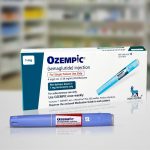
In a move that further toughens safety standards for lead paint dust, the Environmental Protection Agency on Thursday announced the finalization of a rule that declares any detectable amount of the toxin in a home or child care center to be hazardous. “Too often our children, the most vulnerable residents of already overburdened communities, are the most profoundly impacted by the toxic legacy of lead-based paint,” EPA Administrator Michael Regan said in a news release announcing the new rule. “EPA is getting the lead out of communities nationwide. These protections will reduce lead exposures for hundreds of thousands of people every year, helping kids grow up healthy and meet their full potential.” How will the tougher standard accomplish that? The new rule would trigger extensive cleanup by a property owner once a doctor, public health official or other expert identifies signs of lead exposure, depending on state and local laws. It also establishes an aggressive new standard for cleanup that would reduce lead to be at the lowest detectable levels that can be measured in a lab. Lead dust can be created when lead paint crumbles or is disturbed. The EPA estimated that the rule will reduce lead exposure for up to 1.2 million people every year, including up to 326,000 children under the age of 6. “We can all breathe a little easier now that… read on > read on >


















